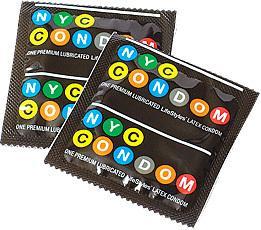This essay first appeared on Cliterati on March 10th; I have modified it slightly for time references and to fit the format of this blog.
In the early days of second-wave feminism, sex workers were widely recognized as having fought for women’s rights for centuries; 1970s whores marched and protested right alongside of housewives and lesbians, and for a while it looked like the cause of sex worker rights would become a mainstream one. But just as it had happened in first-wave feminism, a cabal of white, middle-class, sexually-repressed women commandeered the movement for themselves and elbowed sex workers out; once the AIDS scare began in the early 1980s their victory was complete, and sex worker rights languished as a marginal cause for a generation while gay rights advocates managed to build a powerful coalition which has not only won legal protections for gay people, but dramatically reduced bigotry toward them (especially among the young).
Finally, the sex worker rights movement began to pick up again around the turn of the 21st century; prostitution was decriminalized in some places and liberalized in others, and sex worker unions and other alliances have gained rapidly in power and prominence. Unfortunately, the prohibitionists are not stupid; they noticed that there had been a sea change in public opinion against interfering in private sexual arrangements between consenting adults, and so created the “sex trafficking” hysteria as a means of rallying the public behind criminalization again. As the “Nation Strategy” of Swanee Hunt’s Demand Abolition organization states, “Framing the Campaign’s key target as sexual slavery might garner more support and less resistance, while framing the Campaign as combating prostitution may be less likely to mobilize similar levels of support and to stimulate stronger opposition.” In other words, “since people now recognize it’s wrong for the government to stick its nose into private bedrooms, we have to pretend this is really about something else.”
 But nobody stays asleep forever, and over the past couple of years I’ve begun to see strong signs of a public awakening on this issue despite the lullabies and sleeping-draughts assiduously administered by prohibitionists both inside and outside of government. Canadian public support for criminalization has rapidly eroded in the wake of the Himel decision, and several UN agencies have come out in favor of decriminalization for both health and human rights reasons (specifically repudiating restrictive forms of “legalization” such as those in Sweden, Nevada and the Netherlands). After last summer’s “Sex Worker Freedom Festival” in Kolkata (an answer to the exclusion of sex workers from the International AIDS Conference in Washington), an article in the Guardian called Indian sex workers “a shining example of women’s empowerment”, The Lancet published a pro-decriminalization statement, and several British politicians have strongly criticized the incredible waste of money which resulted from the “trafficking” hysteria around the London Olympics.
But nobody stays asleep forever, and over the past couple of years I’ve begun to see strong signs of a public awakening on this issue despite the lullabies and sleeping-draughts assiduously administered by prohibitionists both inside and outside of government. Canadian public support for criminalization has rapidly eroded in the wake of the Himel decision, and several UN agencies have come out in favor of decriminalization for both health and human rights reasons (specifically repudiating restrictive forms of “legalization” such as those in Sweden, Nevada and the Netherlands). After last summer’s “Sex Worker Freedom Festival” in Kolkata (an answer to the exclusion of sex workers from the International AIDS Conference in Washington), an article in the Guardian called Indian sex workers “a shining example of women’s empowerment”, The Lancet published a pro-decriminalization statement, and several British politicians have strongly criticized the incredible waste of money which resulted from the “trafficking” hysteria around the London Olympics.
Then in just the past few months, the stirrings have become extremely pronounced. Melissa Gira Grant’s “The War on Sex Workers” in February’s Reason magazine touched off angry denunciations from radical feminists but soul-searching and even changes of heart from moderates. On February 28th, I spoke at a symposium at Albany Law School and was not only enthusiastically received, but found several academics and a UN official whose views were not far from mine. Then on International Sex Worker Rights Day, a group of activists (including Dr. Brooke Magnanti and myself) took to Twitter to reveal some of the abuse we’ve received from prohibitionists under the hashtag #whenantisattack, opening the eyes of many to the brutality of those who wish to suppress our profession:
…Magnanti is forced to live in secrecy, her number taken to the top of any 999 summons list because of the innumerable threats she has received…Her family’s privacy has been invaded to find the “causes” of her choice and her personal appearance derided, not least within what might otherwise be called the sisterhood…[this abuse] would seem crazed were it not for MSP Rhoda Grant, who is sponsoring an “end demand for sex trafficking” bill in the Scottish parliament, declaring violence against sex workers a price worth paying to secure her proposals. As Magnanti tweeted: ”Let that sink in. Politician thinks it’s OK if people die b/c of her bill. No one bats an eyelid.”
Is it not time we came to terms with prostitution? Instead, the prostitute herself…becomes the target for culture’s anxieties about sex…whore-bashing…is somehow deemed acceptable…said bashing includes a cohort of feminist critics who…[argue that]…sex workers cannot know their own minds, or be in control of their bodies, and thus consent…Hatred of prostitutes has implications for all women who desire to determine their sexual existences. These obviously stigmatised targets allow a kind of thin-end-of-the-wedge, sanctioned misogyny…
Meanwhile, across the pond, Molly Crabapple wrote about the indefensible behavior of New York police:
…The NYPD will arrest you for carrying condoms, but that depends entirely on who you are. If you’re a middle-class white girl like me, you’re probably safe. But say you’re a sex worker or a queer kid kicked out of your home. Say you’re a trans woman out for dinner with your boyfriend…Maybe some quota-filling cop thinks you look like a whore. Then you’re not safe at all. Like most laughably cruel tricks of the justice system, you probably wouldn’t know that you could be arrested for carrying condoms until it happened to you…the polite middle classes trivialize arrest…They don’t realize that the constant threat of arrest is traumatic, unless it happens to them or their kids.
…How does something so egregious keep happening? Because sex workers don’t matter…to power…Horrors are acceptable when they’re not happening to the dominant class…LGBT civil rights and sex worker advocacy groups are fighting against the use of condoms as evidence. Mainstream feminism is not. A movement that rightly and vociferously fought pharmacists who refused to fill birth control prescriptions has remained largely silent about women being jailed for carrying another contraceptive. Mainstream feminism might remember that the war on women always starts with the war on whores…Until 1996, Ireland locked up unmarried moms and rape victims in Magdalene Laundries, where nuns worked them to death to cleanse their imaginary sins. The nuns built those Magdalene Laundries to imprison sex workers. Tens of thousands of women died within their walls, of every walk of life except the very wealthiest…
 Sex worker advocates have been talking and writing about this (not only in New York but in many places all over the world) for years, but Molly’s article is being widely linked and “tweeted” as though it were saying something new. Please don’t take that as a complaint, because it most certainly isn’t; in fact, it’s the exact opposite. I’m extremely grateful to those outside the sex worker rights movement who are beginning to call attention to our situation and to repeat and amplify our arguments to a much wider audience; with their help, I’m hopeful that sex worker rights will once again become a mainstream feminist, health, human rights and civil liberties issue as it was starting to become in my childhood, and that the majority of the next generation of young people will view persecution of sex workers with the same distaste as most of the current one sees persecution of gay people, and most of my own generation sees race prejudice.
Sex worker advocates have been talking and writing about this (not only in New York but in many places all over the world) for years, but Molly’s article is being widely linked and “tweeted” as though it were saying something new. Please don’t take that as a complaint, because it most certainly isn’t; in fact, it’s the exact opposite. I’m extremely grateful to those outside the sex worker rights movement who are beginning to call attention to our situation and to repeat and amplify our arguments to a much wider audience; with their help, I’m hopeful that sex worker rights will once again become a mainstream feminist, health, human rights and civil liberties issue as it was starting to become in my childhood, and that the majority of the next generation of young people will view persecution of sex workers with the same distaste as most of the current one sees persecution of gay people, and most of my own generation sees race prejudice.
